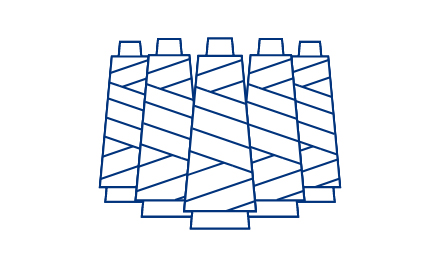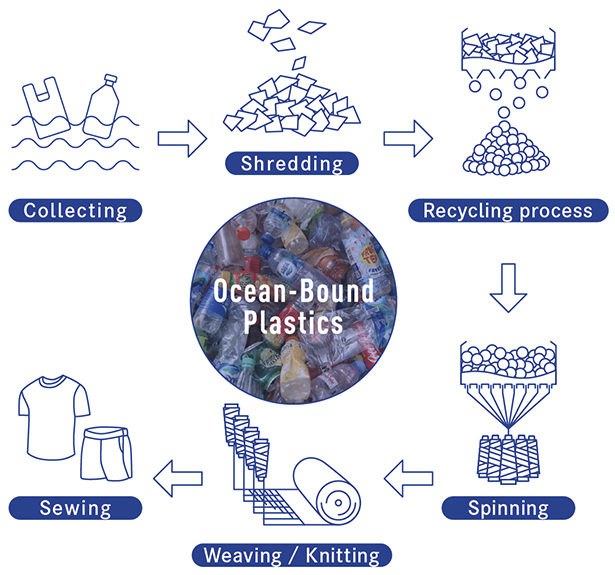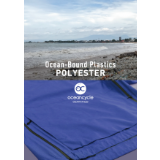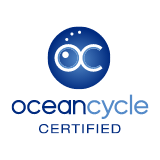1
Serious ocean plastic pollution
More than 80% of marine plastic waste is washouts from land.
In fact, more than 11 million tons of plastic gets washed out into oceans every year and it is predicted that the amount of washouts will just about triple by 2040.
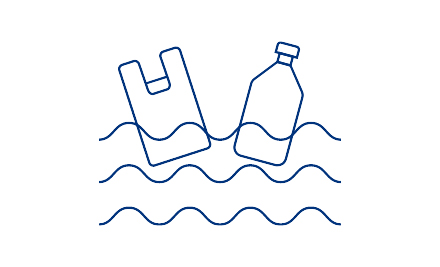
2
OCEANCYCLE-certified recycled material
OCEAN CYCLE is an enterprise that certifies businesses engaged in recovering ocean-bound plastic* and traces each phase of the operations making up the value chain, from recovery to production.
It checks whether the recovery activities are performed by their partnering businesses in appropriate working conditions, with attention paid from ethical and moral perspectives.
* Plastic thrown out inland within 50 km from the coast
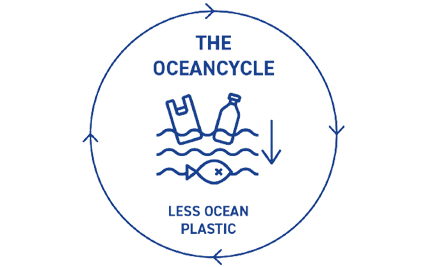
3
Lineup of source yarns
DTY50d/72f SD DTY75d/72f SD DTY75d/36f SD DTY100d/144f SD DTY150d/144f SD
DTY150d/48f SD DTY300d/96f SD